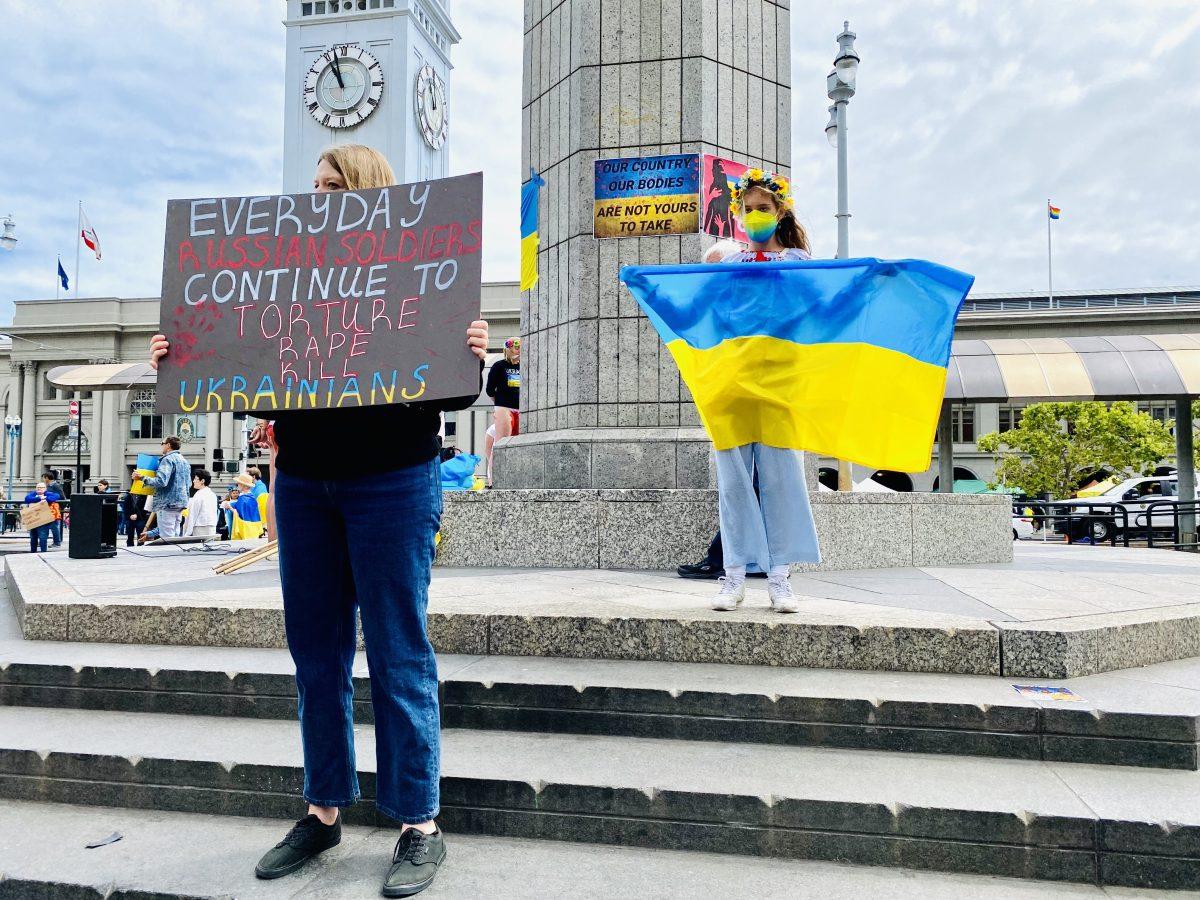
Photo Courtesy Wikimedia Commons
Friday marks the one year anniversary of Russia’s invasion of Ukraine.
Russia launched its invasion of Ukraine, firing missiles at various locations surrounding the capital city of Kyiv which sparked criticism from world leaders, according to a Feb. 24, 2022 CNN article.
Although Kyiv is over 6,000 miles away from the San Jose State campus, Russia’s actions impacted Ukrainian students and faculty.
Ulia Gosart, SJSU School of Information assistant professor, said she saw Russia’s invasion of her home country as a call to action.
“I have colleagues and libraries in Ukraine and when the war started, I knew that I had to be responding to that situation by contributing something to help my people,” Gosart said.
Early into Russia’s invasion, many world leaders condemned President of Russia, Vladimir Putin, and were eager to voice they wanted to hold him accountable, according to a Feb. 24, 2022 Axios article.
“Russia alone is responsible for the death and destruction this attack will bring,” said President Joe Biden in a statement following the invasion. “And the U.S. and its allies and partners will respond in a united and decisive way, the world will hold Russia accountable.”
While Ukraine saw support from many countries, two political juggernauts chose not to castigate Russia.
Political science associate professor Karthika Sasikumar said India and China’s hesitance to call out Putin for his destructive actions is a result of fragility within the three countries’ mutually-beneficial relationships.
“India and China have opted to lean towards Russia,” Sasikumar wrote in an email. “Both of these countries have financial and geopolitical reasons to refrain from condemning Russia.”
Blue and yellow rings illuminated the front of San Jose City Hall as a symbolic motion to cut ties with San Jose’s Russian sister city, Yekaterinburg, according to a Feb. 28, 2022 ABC7 article.
Vigils in support of Ukraine also took place, calling for peace and catalyzing dialogue about the injustice, according to a March 8, 2022 ABC7 article.
Gosart said the outpouring of support she’s seen within the SJSU community has been a bright spot in a dark time.
“It’s been incredibly wonderful to see that people care and want to support,” she said. “It was also wonderful to see other people join in our initiative, and then actually donating to our fundraiser and really caring about supporting a true cause.”
Volodymyr Zhukov, aerospace junior and former Ukraine resident, said he could remember exactly how he felt the moment he got the news.
“I was scared, it was unknown what would happen next,” Zhukov said in a Zoom interview. “I was really down about it and I even felt guilty for not being there.”
He said he spoke to fellow Ukrainian students and said they all shared the same guilt-ridden conscience.
Zhukov, who has multiple family members in Ukraine, said on the second day of the war, a shot down warplane came crashing down one kilometer away from his house.
“I saw pictures of streets where I used to ride my bicycle [and] walk with my dog and there was debris of plane and burnt house,” Zhukov said.
He said he wants people to stay informed about what is going on in Ukraine, so they don’t forget about the situation.
“When [the war] just started it was everywhere,” Zhukov said. “And when it’s ongoing and going, people get tired of it especially if it’s not influencing them directly.”
Sasikumar said she feels bad for the media covering the war, as they are responsible for parsing through a massive influx of information.
“I think that the media has a hard job, because unlike in the past, there is a deluge of information as the conflict is playing out,” Sasikumar wrote in an email. “But not all of the information is accurate, and it is very important to be cautious about the political slant to some of the images and news reports that are circulating.”
Political science senior lecturer Sabrina Pinnell said an issue she has with the media’s coverage is their lack of knowledge on Ukrainian and Russian geography.
“This will affect strategic points in Europe such as the Black Sea Region, and bring conflict up to the borders of NATO countries that have large amounts of Ukrainian refugees,” Pinnell wrote in an email.
While the war in Ukraine has deescalated, the effort to aid those who have been detrimentally affected by the violence still continues.
Zhukov said if SJSU students were to send $20, the strength behind U.S. currency stretches a long way in Ukraine.
Pinnell said sending aid to Ukrainian refugees when this war finally concludes will be paramount.
“It’s going to become more difficult for refugees as this war continues, and note that when the war ends, there will need to be a major reconstruction effort to get Ukraine back on its feet,” Pinell wrote in an email. “This is not a matter of immediate aid, but long-term.”